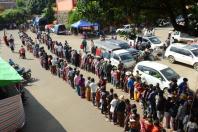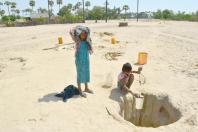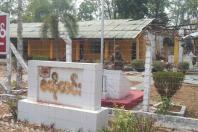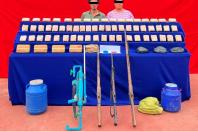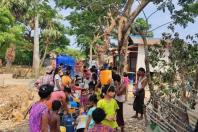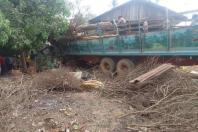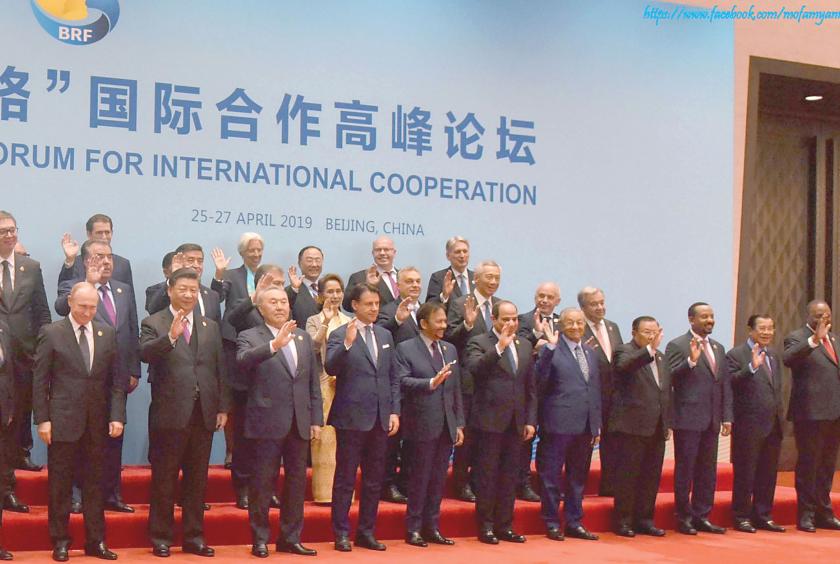
Only if projects win confidence and support of local people from participating countries in BRT, can their aims be achieved. Trust and support of the local people matters most, said State Counsellor Daw Aung San Suu Kyi.
The remarks came from the speech of Daw Aung San Suu Kyi delivered at the High Level Meeting of 2nd Belt and Road Forum for International Cooperation in Beijing on April 26.
Speaking at the High Level Meeting of 2nd Belt and Road Forum, Daw Aung San Suu Kyi said, “projects under this Initiative need to be in line with the development plans and priorities of the participating countries. The projects should not only be economically feasible but also socially and environmentally responsible, and most importantly, they must win the confidence and support of local peoples. These aims can be achieved only by convincing the populace of participating countries that the BRI will have a positive impact on their lives.”
“Myanmar is of the view that high-quality cooperation can only be assured by building consensus among participating countries in adherence to agreed guiding principles, including the five principles of peaceful coexistence,” said Daw Aung San Suu Kyi.
“Myanmar is located as a land bridge between South Asia and Southeast Asia, in close proximity to such large economies as China, India and ASEAN. It has always been our policy to maintain close and friendly relations with all nations, especially with our neighbours. Sharing a border of over 2000 kilometers, China and Myanmar have long valued our special Pauk-phaw relationship and close multi-faceted cooperation,” said Daw Aung San Suu Kyi.
“In view of our geographical proximity, our existing friendly and strategic partnership relations and our firm good neighbourliness with China, Myanmar has embraced the Belt and Road Initiative. At the first BRI Forum, Myanmar and China signed the MOU on Cooperation within the framework of BRI, indicating our commitment to work together to realize the goal of common development in areas of mutual interests, in line with our national plans and priorities.
Two years on, we have completed the signing of the MoU on Jointly Building the Myanmar-China Economic Corridor and also agreed to set up an Economic Cooperation Zone at selected border posts to facilitate trade and investment.
The Economic Corridor will become an important component not only of our bilateral cooperation but also of the Belt and Road cooperation in the regional context, in line with the principles of mutual consultation, joint contribution and shared benefits. The next step will be to identify specific areas of cooperation and the route and mode of the Corridor that these might accord with our National Long-term Development Master Plans and Strategies which are based on the aspirations of our people as well as the priority needs of our country,” said Daw Aung San Suu Kyi.
“Our Government has been making strenuous efforts to improve connectivity within our own country by placing emphasis on the improvement of our infrastructure, in particular, the constructions of roads, ports and railways, and electrification. We believe that the BRI projects selected in line with our national plan and priorities will contribute to our endeavours for the improvement of much needed infrastructure that will not merely enhance domestic connectivity but also improve cross-border connectivity,” said Daw Aung San Suu Kyi.
As cross-border connectivity improves, we will need greater support to strengthen our national capacity and border control facilities. Improvement in cross-border connectivity will mean increased trade, tourism, investment and people-to-people contacts. At the same time, we have to be mindful that such positive developments are too often accompanied by negative factors such as illegal migration and drug and human trafficking. To maximize the benefits from improved connectivity, we would need to take steps to minimize the possible negative social and environmental consequences, said Daw Aung San Suu Kyi.
For development to be sustainable, it needs to be clean and green, to ensure an environment that is condusive to healthy growth and living. We look forward to working with our BRI partners to integrate environmental and social concerns into business operations that our world might be richer and more beautiful in all aspects. Health and education, art and culture should be major beneficiaries of our cooperative efforts towards development, said Daw Aung San Suu Kyi.
Edited by Win Htut


